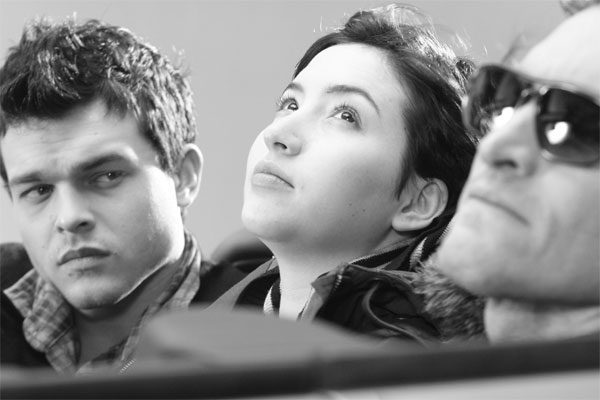Review: Tetro (2009)
I'm having a bit of trouble deciding what about Francis Ford Coppola's Tetro makes it most memorable. Either way, it's a vital and beautiful film that reminds me of why Coppola is one of cinema's treasures.
Coppola (The Godfather, Apocalypse Now) returned to directing in 2007 after a ten-year hiatus with Youth Without Youth (which I haven't yet caught up with). His mandate is now to pursue quirky, experimental, and personal films, rather than returning to big studio filmmaking. His follow up to Tetro, Twixt (covered here as part of Three Brothers Film's TIFF 2011 coverage) played with the genre conventions of gothic cinema vis-a-vis Edgar Alan Poe, and was based on an alcohol fuelled dream.
While Twixt was fun and macabre (as befitting its inspiration) in addition to being quirky and experimental, Tetro emphasizes the intensely personal nature of this phase of Coppola's career: it fluctuates between off-beat humour and family melodrama, is shot in gorgeous black-and-white with interludes in colour, and thematically tackles the story of an Italian family of artists and the secrets and rivalries that divide them (something that would seem to draw on Coppola's own large family of filmmaking artists). While at times those elements seem to be at odds with each other (and the final act takes some tonal changes in direction), I think it's those idiosyncrasies that make Tetro a unique and charming film by a master filmmaker and one that deserves more discussion.
Tetro tells the story of Angelo Tetrocini (Vincent Gallo), a tortured writer who is living in Buenos Aires with his girlfriend, Miranda (Y Tu Mamá También and Pan's Labyrinth's Maribel Verdú), who now goes by the name "Tetro." His younger brother Bennie (Alden Ehrenreich, who at times in this film seems to be uncannily channeling a young Leonardo DiCaprio) comes to town seeking to reconnect with his lost older brother and find out more about their family's tortured past and why Tetro never returned home. Secrets are uncovered and Bennie eventually works to shape Tetro's near-finished play into something that will bring him the success everyone around him feels he deserves. Some might say that the film almost veers off-course in the final scenes of the film, but I thought that the film as a whole treads the path of melodrama enough for it to work for me. One is reminded that the original Godfather film itself was an exercise in deepening and expanding the canvas of genre (the mobster-melodrama).
As for what is most memorable about this film, there are a number of options. First of all, Vincent Gallo is very good as the titular character. He sells the melodrama without veering into parody and anchors the film as a whole. Secondly, the cinematography is striking and beautiful. The work here in black-and-white is an example of why more filmmakers should embrace the colour schema. Perhaps what is most memorable about Tetro is the fact that it doesn't seem to fit into any common paradigm; it combines the technical skills of a master steeped in the classical Hollywood cinema (albeit the "New Hollywood"), with the offbeat characters and unfamiliar locale (to North Americans) of contemporary world cinema.
Either way you slice it Tetro puts to rest the myth that the senior Coppola has nothing left to cinematically give.
8 out of 10
Tetro (2009)
Written and directed by Francis Ford Coppola; starring Vincent Gallo, Maribel Verdú, Alden Ehrenreich, Rodrigo De la Serna, and Klaus Maria Brandauer.
